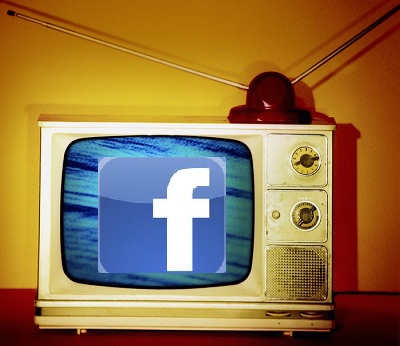
Facebook wants to continue to increase the amount of attention earned from its 800 million-strong user base. At this point, the only way to do that is to become more like a technology that’s increasingly feeling like a relic of the past: Television.
Becoming The Attention Center
At the recent f8 developer conference, we learned that Facebook’s Chief Executive Officer promised Netflix double the level of engagement and users if they joined Facebook’s new sharing system in contrast to the previous plugin-based model of sharing.
Mark Zuckerberg told Reed Hastings, CEO of Netflix, that this was the power of social discovery! Surely the video rental service is now hoping social discovery can help provide a boost (perhaps it can replace the 800,000 subscribers the latter company just lost … ouch).
Whether your friend plays a song, watches a television show, eats a cantaloupe, or plays a game, all of these activities are becoming part of a stream that guide you toward continued engagement.
This new type of television is most definitely foreign to most consumers. You don’t passively consume content. Instead you watch what your friends are doing and do the same thing.
Or, if you happen to be one of the few leaders in the world, you decide to venture off on your own and discover your own content, now all your friends can follow along. All of this is different from what we’ve previously experienced.
Redefining The Television
This also comes at a time when it has become clear that the television has not evolved as fast as the web-based communication technologies that have sprouted up over the past decade.
Good luck finding a show to watch on the cable company’s TV guide. You’ll have to wait half an hour to watch all the programs scroll by or click through each page individually. Yes, some companies have taken a shot at building a television of the future but most things I’ve seen so far have been fairly weak attempts.
Google TV is the one exception that I’ve found. The product’s most significant improvement over existing television solutions is a technology not exactly unfamiliar to the internet giant: search.
Additionally, Google is providing integration with the phone, something they are more than capable of thanks to the ever-expanding Android platform. Whether or not the product will be successful is unknown but it has a hell of a shot at changing the way consumers interact with their TV.
We should expect Microsoft, Apple, and others, to begin offering their own solutions that promise to change the way you interact with your television forever. Yet many of the innovations that we’re beginning to see significantly resemble the existing television: point and click.
While Google TV offers “search and click/press enter,” it still feels familiar. Maybe that’s what the market wants: something that feels familiar.
Yet Facebook is crafting a model for consumption that’s as foreign as consumers are willing to handle.
Facebook’s Way
On Google, you type in a phrase and the search giant’s algorithm comes back with an answer that it perceives to be most relevant to your inquiry. On Facebook, you don’t search, you just load Facebook and the information comes to you.
Whether or not the company has developed the most effective system for discovering content is debatable, but it is distinct. We find things that we want to consume from our friends, not from a machine.
It is that exact model that Facebook would argue is how people want to discover things, and it’s the exact way the television should work.
As Facebook continuously evolves, it moves closer to becoming a form of interactive television. While it currently takes place in front of a computer, we can assume it won’t continue that way forever.
Right now, Facebook appears to be focused on the exploding mobile industry, like all other tech giants, but I can only assume that somewhere in their ever-growing organization, someone is working with a device manufacturer to devise a new form of TV. It’s a device that all the tech giants will be battling for ownership of in the coming years and it’s part of the never-ending battle for attention.
Facebook has obtained the largest slice of consumer attention of any company on the web. I can guarantee you that the executives are not interested in letting that growth rate slow anytime soon. The best way to accelerate that growth is to go after the single largest source of attention in America, if not the world: Television.
Source: allfacebook
 Follow
Follow